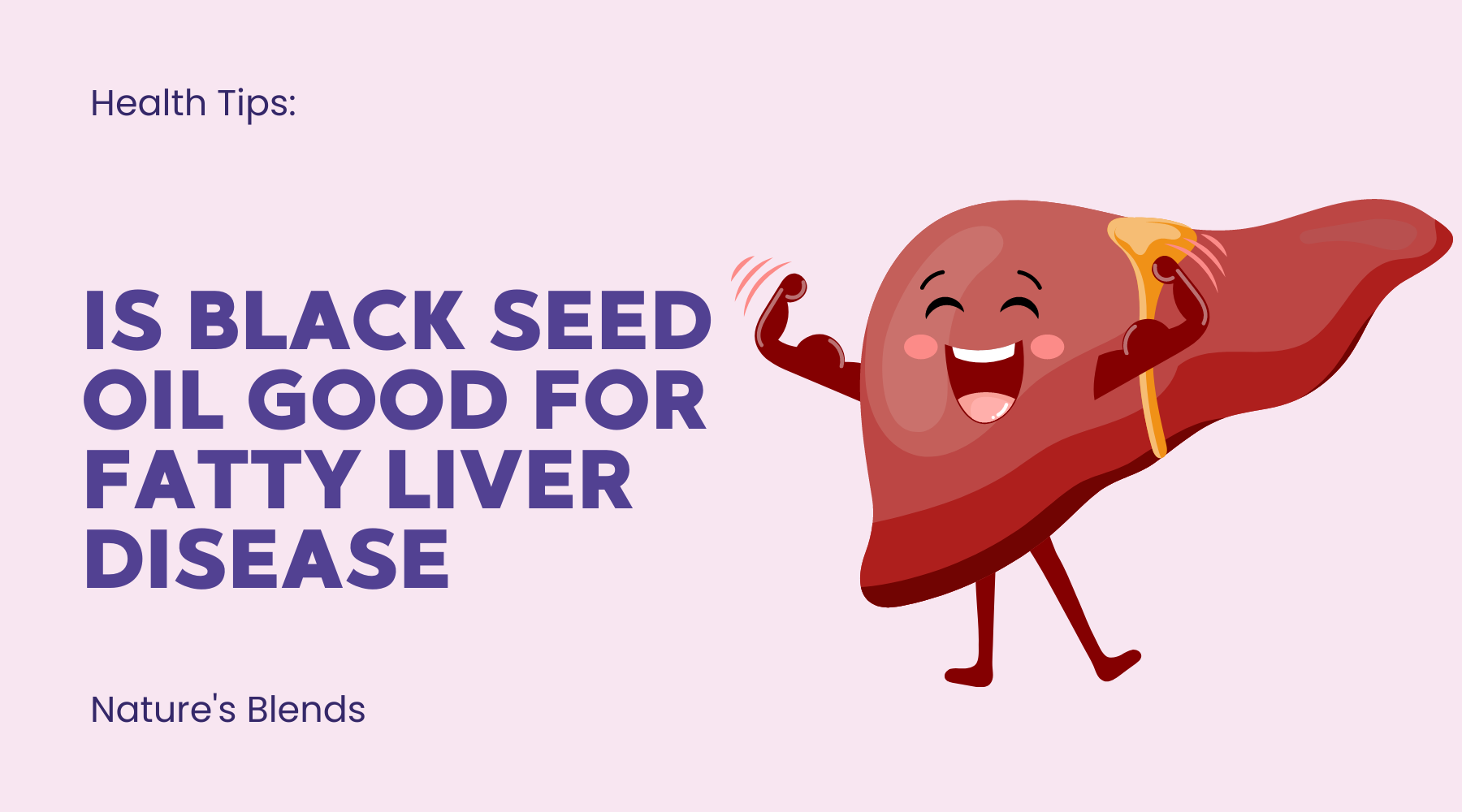 An increasing global health concern, non-alcoholic fatty liver disease (NAFLD) affects millions of individuals. If neglected, non-alcoholic fatty liver disease (NAFLD) can result in severe health consequences due to the accumulation of excess fat in the liver. Black seed oil is one natural treatment that may assist in improving the disease, which is a blessing.
An increasing global health concern, non-alcoholic fatty liver disease (NAFLD) affects millions of individuals. If neglected, non-alcoholic fatty liver disease (NAFLD) can result in severe health consequences due to the accumulation of excess fat in the liver. Black seed oil is one natural treatment that may assist in improving the disease, which is a blessing.
The Nigella sativa plant, utilized for millennia in traditional medicine due to its numerous health advantages, yields black seed oil. It contains high concentrations of anti-inflammatory and antioxidant chemicals and the highly active component thymoquinone, which may have therapeutic benefits.
Black seed oil, coming from the Nigella sativa plant, has been used medicinally for millennia. Black seed oil is well-known for its anti-inflammatory, antioxidant, and antibacterial qualities. It has long been used to treat a range of illnesses. Researchers are looking at the possible effects of its distinct makeup, which includes thymoquinone, the critical ingredient responsible for many of its health advantages, on liver function.
Antioxidant and Anti-Inflammatory Qualities: A Liver-Protective Barrier
Liver damage is frequently the result of oxidative stress and inflammation in fatty liver disease. Black seed oil's potent anti-inflammatory and antioxidant properties suggest it may provide a barrier against liver damage. According to studies, thymoquinone may support general liver health by lowering oxidative stress and inflammation in the liver.Effects of Lipid Reduction: Maintaining Liver Fat Equilibrium
The improper build-up of fat in liver cells is one of the leading causes of fatty liver disease. Research has been done on black seed oil's possible ability to decrease cholesterol. Studies suggest that it could aid in controlling lipid metabolism and averting the overabundance of fat accumulation in the liver. These first results are encouraging for people looking for natural ways to treat fatty liver disease, even if more thorough research is required.Insulin Sensitivity and Metabolic Health: A Relationship
Fatty liver disease and insulin resistance are frequently connected, particularly in cases when metabolic syndrome is present. It has been shown that black seed oil can increase insulin sensitivity, which may benefit people with fatty liver disease. Black seed oil may help to contribute to a more all-encompassing strategy for controlling liver function by tackling insulin resistance.
Here are some additional points to consider:
- Choose high-quality black seed oil: Opt for cold-pressed, organic black seed oil to ensure maximum potency and purity.
- Start with a low dose: Begin with a small dose and gradually increase it over time to minimize potential side effects.
- Be mindful of potential interactions: Inform your healthcare provider about any medications or supplements you are taking to avoid any unwanted interactions.
- Monitor your progress: Regularly monitor your liver function and other health parameters to assess the effectiveness and safety of black seed oil for you.
Although more studies are required to verify black seed oil's long-term safety and efficacy for FLD, available data points to the oil's promise as a supplemental treatment. It's important to remember that black seed oil is not a miracle treatment for FLD. Effective illness management still requires a comprehensive strategy incorporating frequent exercise, a balanced diet, and healthy lifestyle modifications.
Speaking with your healthcare professional before beginning black seed oil supplementation is essential, particularly if you are taking medication or have any underlying medical concerns.
Furthermore, keep in mind that not everyone should use black seed oil. It may have adverse effects on certain people and interact with some drugs.